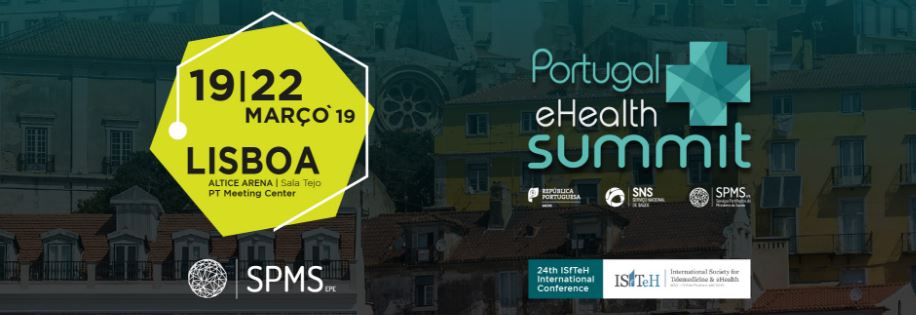
On the 20th and 21st of March 2019, ECHAlliance took part to two workshops arranged by DigitalHealthEurope at the 3rd Portugal eHealth Summit, in Lisbon.
The events were organised together with Partners of the European Blueprint on Digital Transformation of Health and Care for the Ageing Society.
In line with the project’s overarching goal, the two workshops aimed to facilitate expert discussion and agreement on efforts to advance the three priorities set in the European Commission’s 2018 Communication on the Digital Transformation of Health and Care in the Digital Single Market. These refer to: 1) citizens’ secure access to and sharing of health data across borders (2) better data to advance research, disease prevention and personalised health and care, and 3) digital tools for citizen empowerment and person-centred care.
The workshop on 20th March focused primarily on work carried out by the Blueprint Partners in the frame of the We4AHA Coordination and Support Action. This has included so far the creation of twelve personas representing the health and care needs of specific, distinct population groups. The workshop participants, split in different working groups, have taken into account the portfolio of Blueprint personas as a starting point for the further co-development of user scenarios for innovative digital solutions.
The following day, 21st March, a workshop addressing the DigitalHealthEurope Collaboration platform on “Citizen’s secure access to and sharing of health data” took place. The workshop aimed at highlighting good practice examples in the domain of digital health literacy and citizen empowerment, citizen controlled data governance as well as data donation. To achieve this, each domain has been discussed by a separate expert work group.
Bleddyn Rees, ECHAlliance Deputy Chair, has moderated the working group on citizen controlled data governance and data donation together with Petra Wilson, PCHA European programme director. Along with the identification of good practices, the workshop has stimulated an intense debate around key topics such as GDPR and legal implications of health data sharing, definition of health data, business models, cross border access to health data for treatment and access to data for R&I purposes among others. The working group will continue exchanging views and build knowledge towards consensus around a set of shared recommendations for the design and implementation of citizen controlled data governance models.
